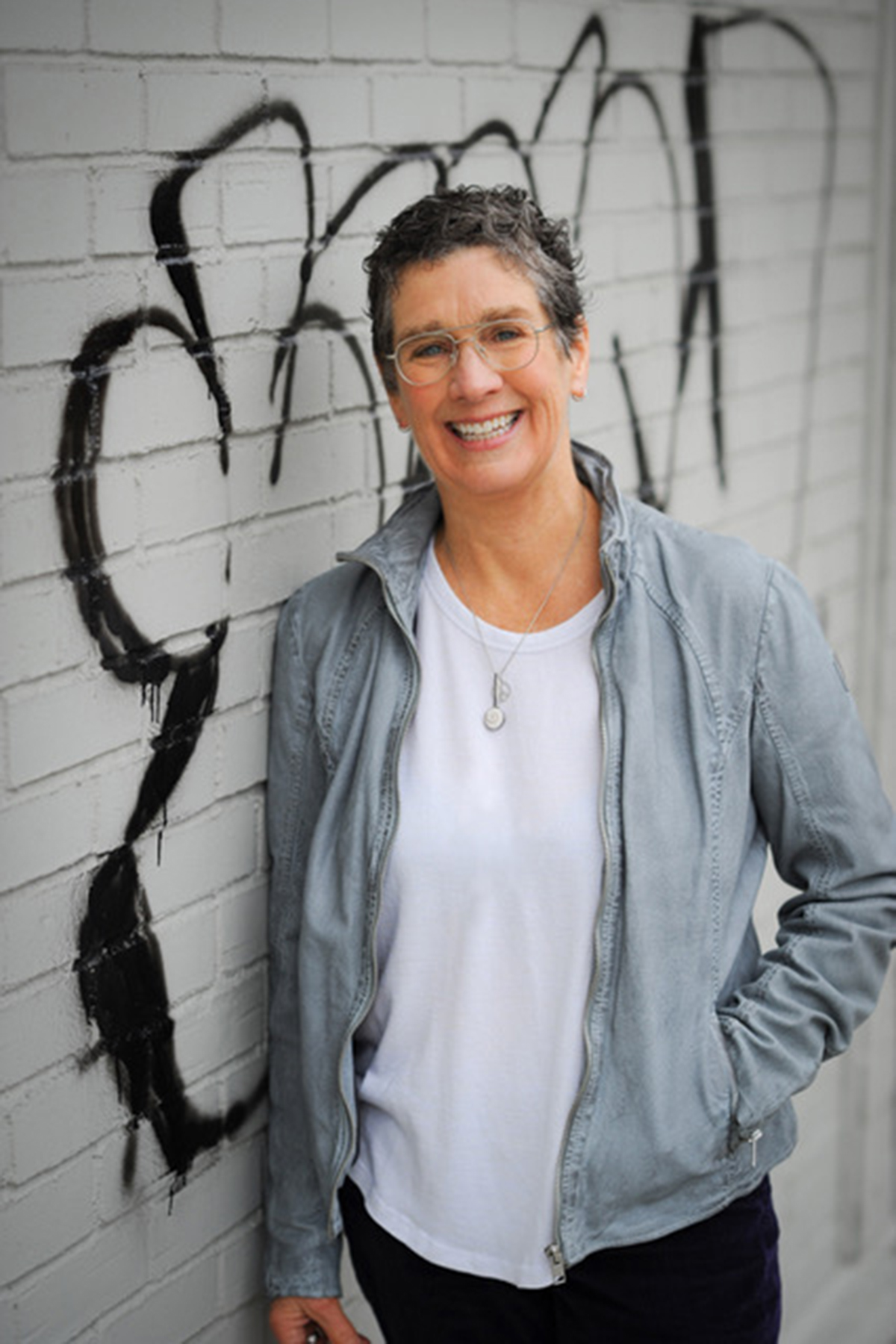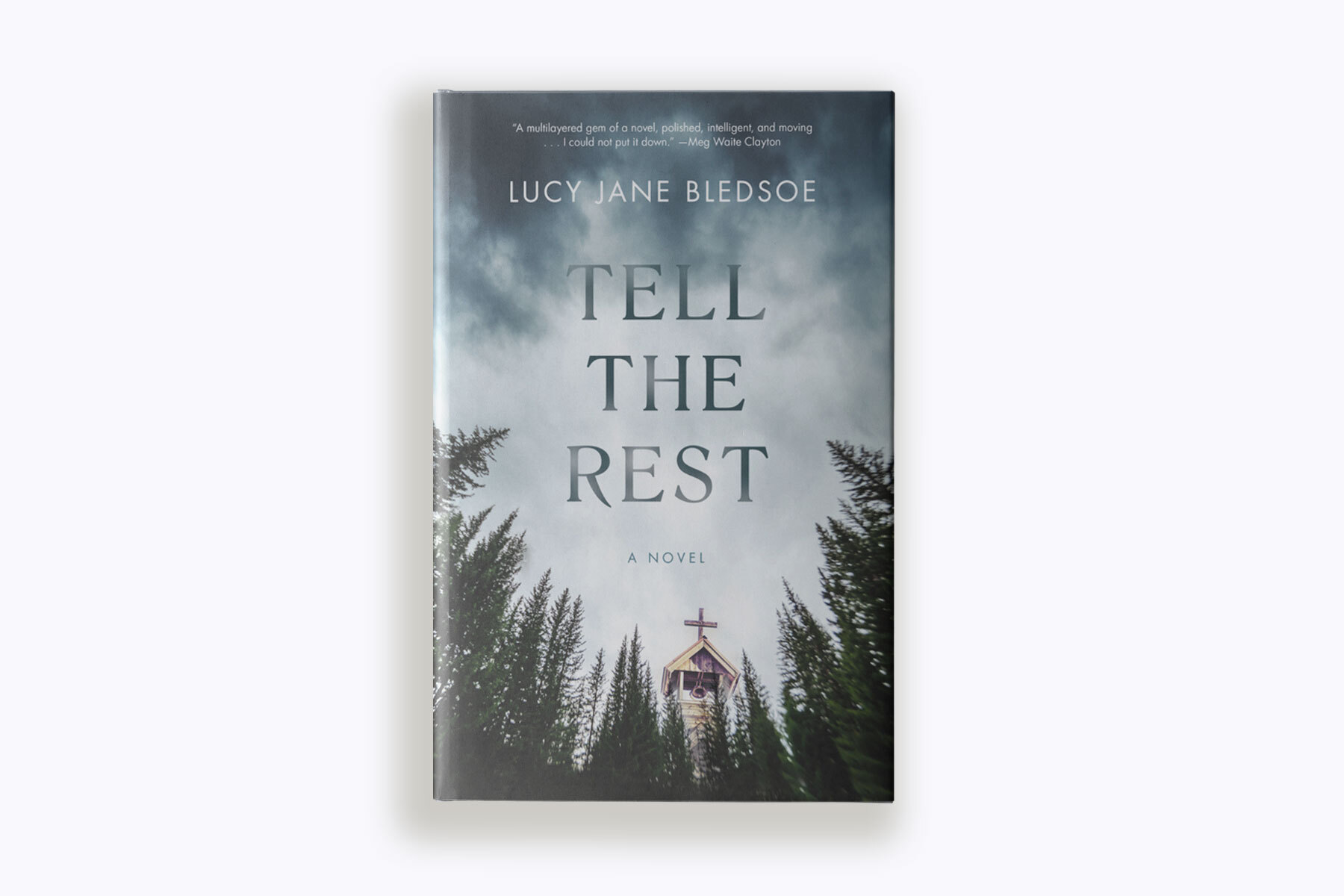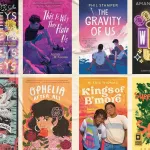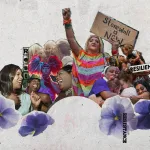Your trusted source for contextualizing LGBTQ+ news. Sign up for our daily newsletter.
Lucy Jane Bledsoe set out to write a book that would speak to our current political climate. She did it by taking readers back 25 years.
Nothing and everything has changed in Bledsoe’s “Tell the Rest,” a novel that takes the reader on a painful excursion into the histories of two conversion therapy camp survivors who are forced to come to grips with their childhoods when they return to Oregon for a school year.
Delia Barnes grows up to coach girls basketball and finds her career nearly derailed when anger over her childhood and her failed marriage spill into her personal and professional lives. Ernest Wrangham enjoys life as a successful queer Black poet, but finishing the poem about that one haunting summer eludes him his entire adulthood.
The two friends, now estranged, spend the book stumbling toward one another, in parallel but separate lives, grieving their childhood selves, wondering about each other while failing to move past a fateful day when they escaped the camp together and never saw each other again.
Bledsoe’s book is ripe with anger, complexity and sadness.
And while its trauma may seem historical, its content is as timely as ever. Fewer than half the states — 21 — fully ban the debunked practice of conversion therapy on minors, wherein mental health professionals try to change a youth’s sexual orientation or gender identity. In the past three years, 17 states have passed laws that ban gender-affirming health care for trans and nonbinary kids.
The 19th sat down with Bledsoe to talk about what made her want to write “Tell the Rest” and what she hopes the book will mean for queer readers in this time when politics are taking aim at the humanity of queer children.
This interview has been edited for length and clarity.

Kate Sosin: Why did you want to write this book right now?
Lucy Jane Bledsoe: I think it started with my own rage. You know, when that last person [Trump] was in the presidency, I just had so much rage, and I wasn’t used to living with that much anger. I didn’t know what to do with it. It’s hard to even know what it is and where it’s coming from. Of course, there’s places I can point to, and that were pretty obvious, but I wanted to tackle that.
But the other thing is, I’m trying to think about why we are in this place politically in this country, and especially queer folks being such targets and having so much hate coming toward us. I had to look at the Christian church. They are fueling so much of this hate. I actually majored in religious studies. I know quite a bit about Christianity. To see this religion that is, in fact, supposed to be about love and community doing this full 180 degrees … I wanted to expose that, I even wanted to invite a conversation. I was nervous when my publisher put that church with a cross on the cover. I thought, “Christian people are going to pick this up and think, ‘This is for me.’” I thought, “Well, good. Let’s have a conversation.”
That didn’t even occur to me, but I would not necessarily pick it up immediately. It might make me nervous.
Well, that was the other fear. I said, “Queer people are going to look at it and say, ‘Hell no.’” I don’t know if either has happened, actually. I hope queer people haven’t turned away from it because of the cover.
I’m curious, you talk about your own rage, sort of filtering it through one of your protagonists, Delia. She is not always likable, and it’s weirdly refreshing to see a queer person who I don’t totally love but I’m still rooting for. Were you nervous about writing her? And what was that like for you?
Yes, I was nervous about writing her because they tell you in any classes about fiction to have likable characters. I guess I have heard the comment you just made from other people, and I think I like her maybe a little more than some people. I wasn’t fully anticipating that she was unlikable.
I know a lot of people are turned off by sports. I know one person was afraid of her sort of coach persona. At the same time, I will say that one thing I tried to do with her … I thought it’d be fun to write a completely reliable narrator, someone who really knows who she is. So she does show all of her anger, all of her flaws, she’s not in denial about them.
The first scene I wrote was when she shoves that kid against the locker in anger because I was starting out in this place of rage. Obviously that’s not a person any of us want to be. Hopefully I shepherd her out of that a little bit via the young women on her team.
-
More from The 19th
- Americans are divided on gender identity, pronouns and whether schools should discuss them, survey finds
- In LGBTQ+ friendly California, Pride Month celebrations in schools have become culture war targets
- Southern LGBTQ+ organizer says change ‘needs to happen no matter where you live’
Obviously the location of the book is familiar to you. How familiar are you with conversion therapy and this camp narrative?
I didn’t go through conversion therapy myself. I was raised in a church, and there were some pretty unsavory aspects of that. I know a lot of people who have been through that or similar forms of abuse from the church and so they’re pretty personal stories. I didn’t go to a camp like that. I did a tremendous amount of research … and I talked to some people personally about their experiences with conversion therapy.
One thing that surprises a lot of my audiences is how prevalent it is right now, today.
We’re having so many conversations about young queer people in this country right now. And I don’t know that we think about what happens to them as adults based on whether or not we embrace them. This book feels really timely when there’s so much talk now about erasing trans youth and queer kids.
I really appreciate you noticing that because that was really important to me. I didn’t want to write what is sometimes called trauma porn, where you only talk about the trauma and sort of delve into that for 300 pages. I really wanted to show how so many of us survive and thrive.
I’m curious about the choice to set it in Oregon. I’m wondering if you did that because Oregon was familiar to you or if it was intentional politically because we don’t think about Oregon when we think about conversion therapy.
Well, part of it is because I’m familiar with it. I grew up both on the Oregon coast and Portland so I’m very familiar with it and deeply familiar with the political and cultural streams that are happening there. It is a really funny state because Portland and I guess Eugene are very blue progressive places, and the rest of the state is a nightmare.
I’ve been very interested in how BIPOC and queer people all work together in some of the smaller towns in America. I just wanted to look at that because I think it’s surprising sometimes.
There’s an aspect to the story that feels very human across any identity, which is that sometimes it’s difficult to go home. And that is especially true for Delia. I am wondering if that was a theme that you wanted to get at, if there’s something about translating that for young people in terms of saying it is OK to leave. Or if that was a thought that you had when you wrote this?
Yes, I feel like everything I’ve ever written I’ve been trying to understand the meaning of home and I don’t think I’ve really figured it out yet. … And probably from my queer perspective, what does that mean, going home? I have an enormous family in Oregon. I love them dearly. They love me but I don’t quite feel like I can go be in that family in the same way that, you know, all of my straight siblings can. That may or may not be true. And if they heard me say that they would object hugely. I guess maybe everyone’s been trying to figure out what home means for a long time, but I was exploring that and I don’t feel like I landed very clearly on that answer yet.






